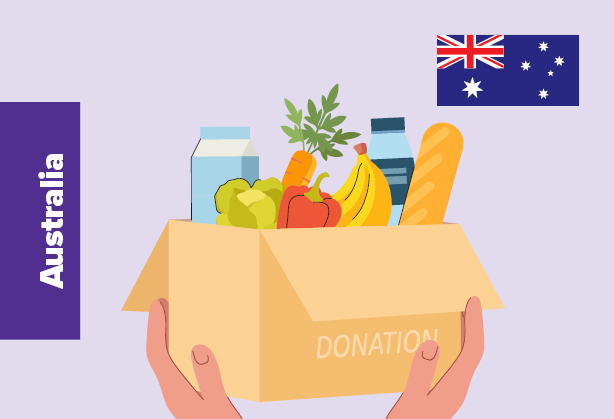
Food Donation Tax Incentive to Tackle Hunger
New findings from Foodbank Australia reveal a deepening food insecurity crisis, prompting renewed calls for the Federal Government to introduce a National Food Donation Tax Incentive. The Hunger Report shows that food insecurity is no longer confined to low-income households.
Even those earning above $90,000 a year are finding it difficult to put food on the table amid rising living costs. One in three Australian households reported going hungry over the past year, highlighting that food hardship is now affecting working families.
Renters remain among the hardest hit, with nearly half experiencing hunger. About three-quarters of people living with a disability or health issue reported severe levels of food insecurity. At the same time, Foodbank estimates that 7.6 million tonnes of food were sent to landfill last year, despite 70 per cent of it being suitable for consumption.
To address both problems, Foodbank is urging the Labor government to adopt a National Food Donation Tax Incentive. The proposal aims to make it easier and more financially viable for food producers, distributors, and retailers to donate surplus food instead of discarding it.
Currently, many businesses find it cheaper to throw away good food than to donate it. This is largely due to logistics and the absence of tax benefits. The proposed incentive would change that by offering a tax offset to companies that redirect edible food to registered food relief organisations.
According to Foodbank, this policy could mean 100 million additional meals for Australians in need each year. It would also support Australia’s national goal of halving food waste by 2030.
The initiative was first introduced to Parliament in mid-2023 by Western Australian senator Dean Smith but was rejected by the Senate Economics Committee. The committee expressed concern that larger supermarkets might benefit more than smaller food businesses. Advocates argue that a well-designed system could ensure fairness while still encouraging widespread participation across the entire food supply chain.
Implementing a National Food Donation Tax Incentive could transform the way Australia handles surplus food. For the public, this means fewer families facing empty cupboards, reduced environmental impact from landfill, and a more compassionate approach to feeding Australians in need.



